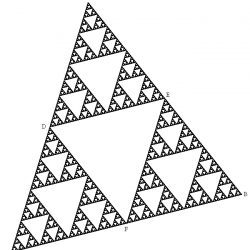 Philosophy is an ancient discipline that deals with investigating, in order to solve, the main questions that invade man, such as existence, morals, ethics, knowledge, language, among others.
Philosophy is an ancient discipline that deals with investigating, in order to solve, the main questions that invade man, such as existence, morals, ethics, knowledge, language, among others.
It is certainly a comprehensive area in terms of the fields of study in which it intervenes and is also influenced by other sciences and fields such as politics and religion.
Philosophy that arises in the Renaissance and extends until the last years of the 20th century and whose main characteristic is the subjectivity that installs a change in the way of inquiry about the central problems or themes of life and man
The modern philosophy was born at the beginning of Renaissance and Protestant Reformation until the last years of the last century, 20th century.
After centuries and centuries of philosophizing about issues circumscribed to the theological, a reactionary spirit of protest arises against the traditional position of philosophy. In ancient times, ancient philosophy started from objective reality to carry out philosophical reflections, then, in the Middle Ages, the philosophy of that time had decided to take God as the center and reference, instead, the arrival of modern philosophy proposes a substantial change as a consequence of the installation of subjectivity in the center of the scene.
The doubts that arise about the possibility of an objective knowledge of the material or divine reality, make the problem of knowledge the starting point of philosophical reflection.
Ancient philosophy took objective reality as the starting point of its philosophical reflections, in the Middle Ages, God was the reference, and in the case of modern philosophy, which concerns us in this review, subjectivity is the basis of this proposal .
Doubt, reason, investigation and subjectivity, its pillars
The doubt, the investigation and the reason are the great stars and the pillars on which it will be based, and it is precisely in them that we will seek to find the certainties to the doubts that arise.
There were many events that occurred towards the end of the Middle Ages, both in the social, political, cultural and philosophical order, which will be the ones that will eventually open the way to the brand new modernity.
The development of humanism, in the philosophical field, added to the scientific revolution proposed by the conclusions of Nicolaus Copernicus with his heliocentric theory of earth, caused the fall of the current scholasticism and the resurgence of new conceptual schemes totally distant from old philosophical disputes that were normally settled at the behest of an authority, Platonic or Aristotelian, as appropriate.
René Descartes, pioneer of modern philosophy
While, French philosopher René Descartes is considered as the "Father" of modern Philosophy because his thinking led him directly to the creation of a new mathematical science, of analytical geometry and also to reach the conclusion that in order to avoid error, it is not only enough to have intelligence but to apply it properly, that is, , it requires yes or yes of a method, because otherwise the disposition of intelligence is useless without the presence of a method to execute it.
Descartes was the promoter and pioneer of rationalism, a doctrine that holds that reality is rational and that it is only understandable through the use of reason. The reason is the basis and the method he proposes includes mathematics, an exact science.
His fundamental proposal was the so-called methodical doubt that implied putting all the knowledge that existed to trial in order to find unequivocal principles on which knowledge or knowledge will be based.
A phrase of his, which would pass to posterity, seals this thought and method: "I think, therefore I am"
The Cartesian method proposed for all sciences to decompose complex problems into simpler parts until finding their basic elements, which are presented to our reason in an obvious way and thus continue from them to rebuild the entire complex.
Pro we cannot ignore the influence of the other group that composed and was decisive in modern philosophy and that accompanied the rationalists like Descartes: the empiricists.
The empiricists held as a fundamental principle of knowledge the sensory experience that with it knowledge will begin
Meanwhile and towards the end of the eighteenth century another great philosopher appears, Immanuel Kant who set himself the titanic task of uniting rationalism with empiricism, however, he did not achieve his pretentious aspiration of unity in its entirety because the disputes between both sides of modern philosophy they continued.









